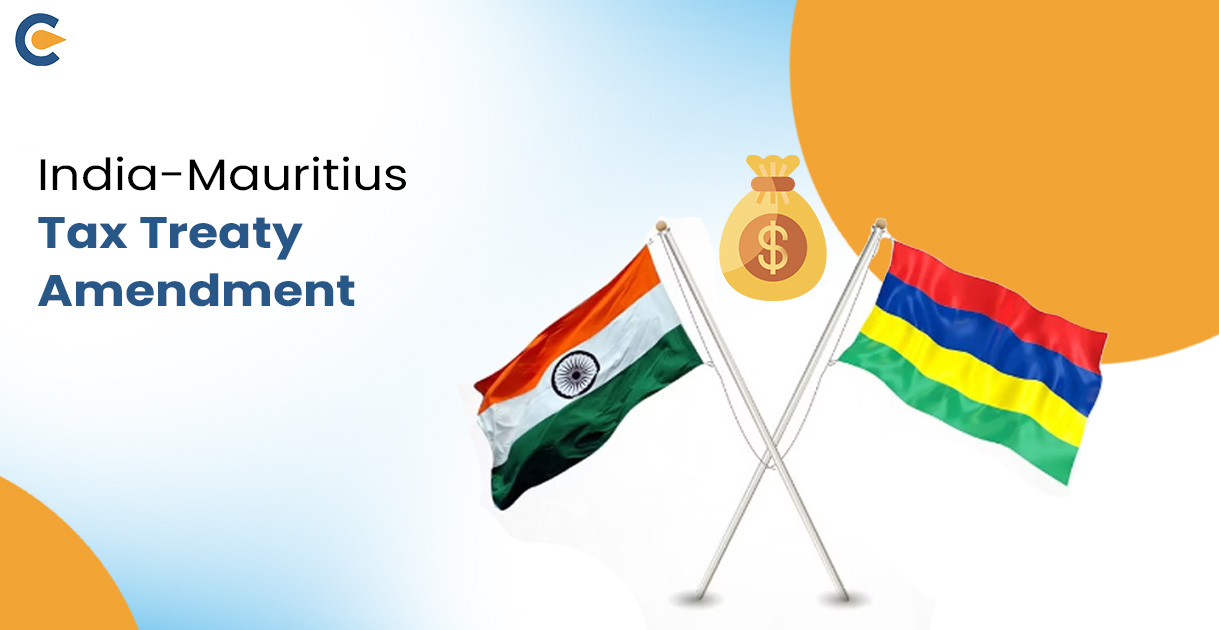India and Mauritius have signed a protocol in Port Louis, the Capital of Mauritius, whereby amending the Double Taxation Avoidance Agreement (DTAA) to curtail the treaty abuse for tax evasion purposes.
The amendment pact has inserted the Principal Purpose Test (PPT), which basically provides that tax benefits under the treaty will only be applicable to transactions whose principal purpose was not to obtain the tax benefits under the India-Mauritius tax treaty. The India-Mauritius tax treaty amendment intends to grant tax benefits only to transactions with a bonafide purpose.
The signed Protocol has inserted Article 27B in the DTTA, which defines “entitlement to benefits.” The Principal Purpose Test will essentially deny treaty benefits where it finds that obtaining benefits under the India-Mauritius tax treaty is one of the principal purposes for the parties engaged in the transaction. It will result in several parties not getting any reduction of withholding tax on interest, royalties, and dividends.
Throwing Light on the India-Mauritius Tax Treaty Amendment
The amendment between India and Mauritius was signed on 07.03.2024 and made public on 10.04.2024.
The capital gains from sale of shares in Indian companies were not taxable until the year 2016; Mauritius has been a popular jurisdiction for foreign investments in India. The DDTA treaty was recently modified in May 2016, allowing for the taxation of capital gains from the sale or transfer of Indian firm shares acquired by a Mauritius tax resident. However, investments made before March 31, 2017, are still exempted from this taxation.
However, the new India-Mauritius tax treaty amendment does not specify whether past investments will be grandfathered. The Ministry of Finance is likely to issue a clarification very soon.
A huge number of foreign investors and entities routed their investments in India through Mauritius due to the tax benefits they received through the DTAA. Mauritius still is the fourth largest source of foreign investments in India, with the USA, Singapore, and Luxembourg in the first three places.
The other key point to note in the India-Mauritius tax treaty amendment is that the preamble of the treaty has also been changed from “mutual trade and investment” to “eliminate double taxation”. This amended treaty intends to eliminate and significantly reduce tax evasion and prevent foreign investors’ abuse of the India-Mauritius tax treaty.
From now on, investors from Mauritius will have to provide proof of the business justification for their deals, and only then can they obtain the tax benefits under the treaty. They will also be required to demonstrate that their primary objective was not to use the tax treaty benefits, and it is likely that this will substantially raise the number of litigations in this arena.
What’s DTTA Amendment Holds in Store?
This new DTTA amendment signifies intent of India and Mauritius to align with the international effort to prevent treaty abuse and tax evasion. There are reports of a sell-off in the stock markets, with foreign investors selling equities in vast amounts as they believe that the new amendment in the India-Mauritius tax treaty will result in severe scrutiny.
The Income-Tax Department took to X, the social media platform previously known as Twitter, to clarify the concerns raised by various investors. It wrote that “some concerns have been raised on the India Mauritius DTAA amended recently. In this context, it is clarified that the concerns /queries are premature at the moment since the Protocol is yet to be ratified and notified u/s 90 of the Income-tax Act, 1961. As and when the Protocol comes into force, queries, if any, will be addressed, wherever necessary.”
For the amendment to take effect, India and Mauritius must ratify and notify it.
Some taxation experts believe that it will also affect previous tax gains made under various transactions by foreign investors, as the India-Mauritius tax treaty amendment seems to have a retrospective effect. However, the Income tax authorities have not clarified this. Filing of an Income Tax Return in a timely manner is a legal obligation and also has numerous benefits. It is an essential document for raising funds from the market and claiming various applicable deductions. A timely ITR filing also helps procure government contracts. Non-compliance with ITR filing may result in the application of penalties and further legal prosecution











